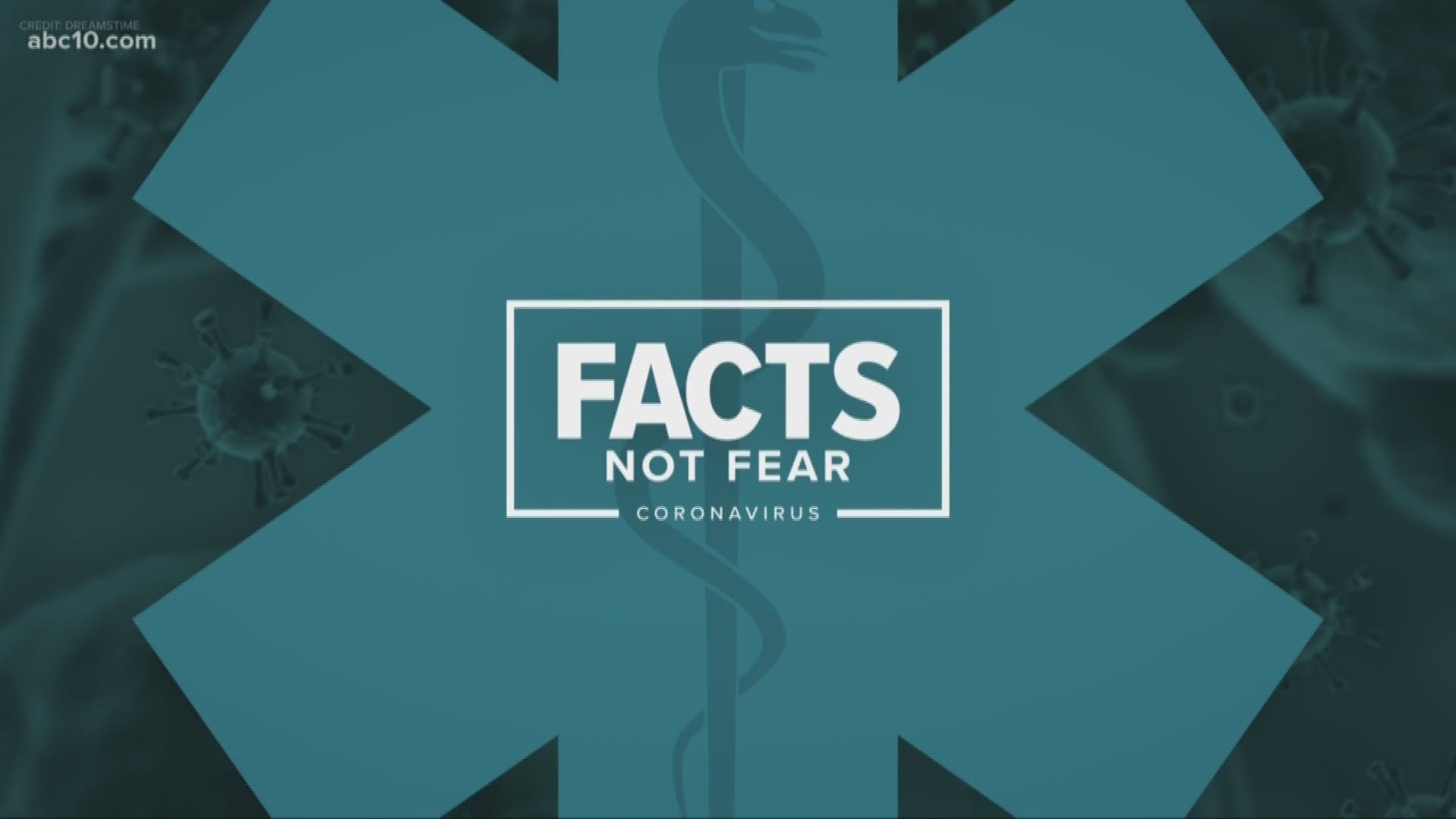SACRAMENTO, Calif. —
Gov. Gavin Newsom on Thursday directed all commercial and Medi-Cal health plans to provide free coronavirus testing to patients when a physician deems it medically necessary.
It's a move that will help those who may show symptoms for the virus known as COVID-19, but the directive may not help those who actually need treatment.
"This doesn't mean every Californians should be seeking a test," said Dr. Mark Ghaly, secretary of the California Health and Human Services Agency. "If you are experiencing symptoms of COVID-19 and may have had contact with a person with COVID-19 or recently traveled to countries with apparent community spread, call your health care provider or local public health department first before seeking medical care."
Costs will be waived for emergency room, urgent care or provider office visits when the purpose of the visit is to be screened and tested for COVID-19, according to Department of Managed Health Care (DMHC). The need for COVID-19 testing is based on medical necessity, a clinical determination made on a case-by-case basis by medical professionals.
People who receive health insurance through Medi-Cal, Medicare and commercial plans won't have to pay anything for COVID-19 screening and testing or the visit associated with that testing, according to the California Department of Insurance (CDI).
Medicare Part B covers the test when a doctor or other health care provider orders it, if an individual got the test on or after Feb. 4, 2020, according to Medicare's blog. Generally, Medicare recipients pay nothing for approved clinical diagnostic laboratory tests. Providers will need to wait until after April 1, 2020, to be able to submit a claim to Medicare for the test.
About 13 million Californians are covered by Medi-Cal, according to Adam Weintraub, spokesperson for the California Department of Health Care Services. He said virtually all of them would qualify for a free screening if a doctor decides it's necessary.
"If there is a medical determination that they need to do the test, they would receive it and it would be no cost to them," Weintraub said. "If the test shows that they have been exposed and they need additional treatment, whether it’s prescriptions, hospitalization, intubation... that treatment also will be free of charge to the patient."
So how much does a COVID-19 test cost out-of-pocket? It's hard to tell.
"The Department [of Insurance] does not have cost information for this new test," CDI press said in an email to ABC10.
While testing is covered for people with commercial health plans, treatment is not.
"The Bulletin's cost sharing waiver pertains to costs for COVID-19 screening/testing and the visit associated with that testing in an effort to remove barriers to testing," CDI said. "It does not apply to subsequent hospitalization or quarantine."
The CDI said claims for the test will be processed like any other for a medically necessary covered service, except that insurers and providers will be expected not to bill or collect any cost sharing from consumers for services involving screening/testing for COVID-19, including any visit or facility fees associated with the screening or testing.
If a health plan enrollee is inappropriately charged cost-sharing for medically necessary screening and testing for COVID-19, they should follow up with their health plan. If their health plan does not resolve the issue, they should contact the DMHC Help Center for assistance at 1-888-466-2219 or www.HealthHelp.ca.gov.
Background:
According to the CDC, coronavirus (COVID-19) is a family of viruses that is spreadable from person to person. Coronavirus is believed to have been first detected in a seafood market in Wuhan, China in December 2019. If someone is sick with coronavirus, the symptoms they may show include mild to severe respiratory illness, cough, and difficulty breathing.
Currently, there is no vaccine, however, the CDC suggests the following precautions, along with any other respiratory illness:
- Avoid close contact with people who are sick.
- Avoid touching your eyes, nose, and mouth.
- Stay home when you are sick.
- Cover your cough or sneeze with a tissue, then throw the tissue in the trash.
- Clean and disinfect frequently touched objects and surfaces using a regular household cleaning spray or wipe.
- Wash your hands with soap and water for a minimum of 20 seconds.
The CDC also says facemasks should only be used by people who show symptoms of the virus. If you’re not sick, you do not have to wear a facemask. The CDC says the immediate risk to the U.S. public is low.
FOR NEWS IN YOUR COMMUNITY, DOWNLOAD THE ABC10 APP:
►Stay In the Know! Sign up now for ABC10's Daily Blend Newsletter



